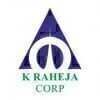
CBRE
Proud winner of ABECA 2025 - AmbitionBox Employee Choice Awards
Filter interviews by
CBRE Valuation Associate Interview Questions and Answers
CBRE Valuation Associate Interview Experiences
3 interviews found
I applied via Campus Placement
Easy to medium difficulty level qs
(2 Questions)
- Q1. Tell me about yourself
- Q2. Dcf, npv, irr, wacc, capital budgeting
I applied via Campus Placement and was interviewed in Feb 2023. There were 4 interview rounds.

Mostly Verbal reasoning questions
(1 Question)
- Q1. Introduction Family What is valuations and it's techniques
- Ans.
Valuation is the process of determining the value of an asset or a company using various techniques.
Valuation techniques include discounted cash flow analysis, comparable company analysis, and precedent transaction analysis.
Valuation is important for mergers and acquisitions, financial reporting, and tax purposes.
Valuation can be applied to various assets such as real estate, stocks, and intellectual property.
Valuation...
(1 Question)
- Q1. Introduction Tell me about your internship What is CPI vs WPL What is sensitivity analysis
Interview Preparation Tips
I applied via Campus Placement and was interviewed before Jun 2023. There were 2 interview rounds.
(2 Questions)
- Q1. Tell me about yourself
- Q2. All basic HR questions
(5 Questions)
- Q1. How is NPV calculated?
- Ans.
NPV is calculated by discounting all future cash flows back to the present value using a discount rate.
Calculate the present value of all expected future cash flows
Discount each cash flow back to the present using a discount rate
Sum up all the discounted cash flows to get the Net Present Value
NPV = CF1/(1+r)^1 + CF2/(1+r)^2 + ... + CFn/(1+r)^n - Initial Investment
If NPV is positive, the investment is considered profita...
- Q2. What do you know about real estate?
- Ans.
Real estate involves buying, selling, and managing properties such as land, buildings, and homes.
Real estate includes residential, commercial, and industrial properties.
Investing in real estate can provide rental income and potential appreciation in property value.
Real estate valuation involves determining the market value of properties based on factors like location, size, and condition.
- Q3. What are different valuation approaches?
- Ans.
Valuation approaches include market approach, income approach, and asset-based approach.
Market approach involves comparing the subject company to similar publicly traded companies or recent transactions.
Income approach focuses on the present value of expected future cash flows generated by the business.
Asset-based approach values the company based on its tangible and intangible assets.
Each approach has its own strength...
- Q4. What is DCF, explain in detail?
- Ans.
DCF stands for Discounted Cash Flow, a valuation method used to estimate the value of an investment based on its expected future cash flows.
DCF calculates the present value of expected future cash flows by discounting them back to their current value using a discount rate.
It takes into account the time value of money, as cash received in the future is worth less than cash received today.
DCF is commonly used in finance ...
- Q5. When is Vlookup used and what is the formula?
- Ans.
Vlookup is used in Excel to search for a value in a table and return a corresponding value from another column.
Vlookup is used to search for a value in the leftmost column of a table and return a value in the same row from a specified column.
The formula for Vlookup is =VLOOKUP(lookup_value, table_array, col_index_num, [range_lookup]).
For example, =VLOOKUP(A2, B2:D10, 3, FALSE) will search for the value in cell A2 in th...
Top trending discussions






Interview questions from similar companies

I applied via Recruitment Consulltant and was interviewed before Sep 2021. There was 1 interview round.
(2 Questions)
- Q1. Why would you look for such change
- Q2. Because I want to be in different work roles to understand the industry as a whole and ve 360 degree view
- Ans. To add versatility to my career graph
Interview Preparation Tips

I applied via Naukri.com and was interviewed in Aug 2021. There were 3 interview rounds.

(6 Questions)
- Q1. What are your salary expectations?
- Ans.
I expect a competitive salary that reflects my experience and the industry standards for a Senior Manager role.
Research industry standards: For example, similar roles in my region typically offer between $100,000 and $130,000.
Consider my experience: With over 10 years in management, I bring valuable skills that justify a higher salary.
Discuss total compensation: I'm open to discussing benefits, bonuses, and other perks...
- Q2. What is your family background?
- Q3. Share details of your previous job.
- Q4. Why are you looking for a change?
- Ans.
I'm seeking new challenges and opportunities for growth that align with my career aspirations and values.
Desire for professional growth: I'm looking for a role that offers more leadership opportunities, like managing larger teams or projects.
Alignment with values: I want to work for an organization whose mission resonates with my personal values, such as sustainability or innovation.
Seeking new challenges: I'm eager to...
- Q5. What are your strengths and weaknesses?
- Ans.
I excel in strategic thinking and team leadership, but I sometimes struggle with delegating tasks effectively.
Strength: Strategic Thinking - I successfully led a project that increased revenue by 20% through innovative marketing strategies.
Strength: Team Leadership - I foster a collaborative environment, resulting in a 30% improvement in team productivity.
Weakness: Delegation - I tend to take on too much myself; I am w...
- Q6. Tell me about yourself.
(1 Question)
- Q1. About F&A process, Quality skills, Projects done
Interview Preparation Tips

I applied via Recruitment Consulltant and was interviewed before Aug 2022. There was 1 interview round.
(2 Questions)
- Q1. What is your goal in 5 years?
- Q2. Would you work long hours? Would you 7 days a week
- Ans.
I am committed to my role and willing to work long hours when necessary, but balance is essential for sustained productivity.
I believe in the importance of work-life balance to maintain long-term productivity and creativity.
In my previous role, I often worked late during critical project phases, but I ensured to take time off afterward to recharge.
I am open to working weekends during peak times, but I also prioritize t...
Interview Preparation Tips

I applied via Approached by Company and was interviewed in Apr 2023. There were 2 interview rounds.

(2 Questions)
- Q1. Personal experience and aspirations
- Q2. Why you are looking job change
- Ans.
Seeking new challenges and growth opportunities
Current job lacks growth opportunities
Looking for a more challenging role
Interested in exploring new industries
Seeking better work-life balance
Interview Preparation Tips

I applied via Recruitment Consulltant and was interviewed in Feb 2023. There were 5 interview rounds.

Discussion about carrier plan and goal
(1 Question)
- Q1. Regarding work experience question
(2 Questions)
- Q1. Commercial and time line
- Q2. Planing for future management
- Ans.
Planning for future management involves setting clear goals, developing strategies, and continuously evaluating and adjusting plans.
Set clear and achievable goals for the organization
Develop strategies to achieve these goals, including resource allocation and timeline
Regularly evaluate progress and adjust plans as needed
Consider potential challenges and risks in the future management plan
Involve key stakeholders in the...
(1 Question)
- Q1. Client interaction about previous project experience

I applied via Referral and was interviewed before Mar 2023. There was 1 interview round.
(2 Questions)
- Q1. Construction management & stakeholder management knowledge is most important part for round 1 interview.
- Q2. It is all about management & technical knowledge related points
Interview Preparation Tips

1. They asked puzzles
(1 Question)
- Q1. They ask some mind questions and calculation, how good you are in logic along with Excel knowledge
Interview Preparation Tips
CBRE Interview FAQs
Tell us how to improve this page.
CBRE Interviews By Designations
- CBRE Assistant Manager Interview Questions
- CBRE Facility Executive Interview Questions
- CBRE Facility Manager Interview Questions
- CBRE Project Coordinator Interview Questions
- CBRE Assistant Facility Manager Interview Questions
- CBRE Deputy Manager Interview Questions
- CBRE Project Manager Interview Questions
- CBRE Senior Project Coordinator Interview Questions
- Show more
Interview Questions for Popular Designations
Overall Interview Experience Rating
based on 3 interview experiences
Difficulty level
Duration
Interview Questions from Similar Companies
CBRE Valuation Associate Reviews and Ratings
based on 2 reviews
Rating in categories
|
Assistant Manager
1.4k
salaries
| ₹4.6 L/yr - ₹10 L/yr |
|
Facility Executive
629
salaries
| ₹2.8 L/yr - ₹6.6 L/yr |
|
Facility Manager
534
salaries
| ₹5.7 L/yr - ₹13 L/yr |
|
Assistant Facility Manager
530
salaries
| ₹4.1 L/yr - ₹9.1 L/yr |
|
Deputy Manager
521
salaries
| ₹5.6 L/yr - ₹12 L/yr |

JLL

NoBroker

Cushman & Wakefield

Colliers India
- Home >
- Interviews >
- CBRE Interview Questions











